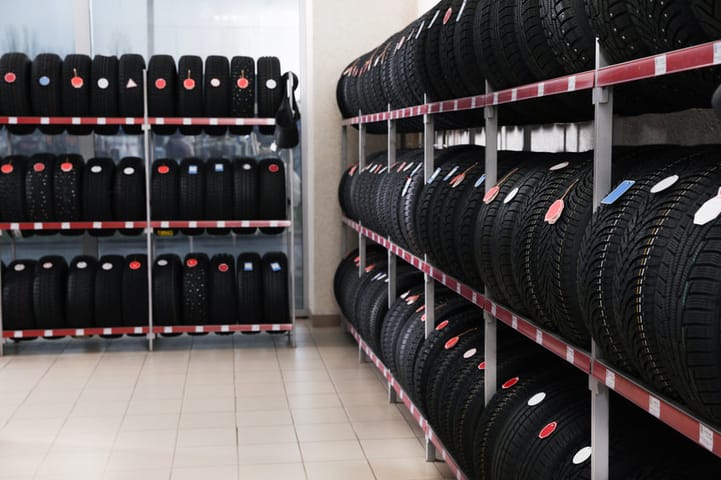Open Cost Savings at Morris Tire: Your Premier Source for Discount Rate Tires Morris IL
Open Cost Savings at Morris Tire: Your Premier Source for Discount Rate Tires Morris IL
Blog Article
The Ecological Advantages of Proper Tire Maintenance
Preserving correct tire care is usually ignored, yet its effect on the environment is extensive. Proper tire maintenance not just prolongs the lifespan of tires yet additionally decreases landfill waste and adds to improved air top quality.
Reduced Gas Intake
Improving tire upkeep techniques can lead to a considerable decrease in gas intake for vehicles. According to the U.S. Division of Power, underinflated tires can reduce gas mileage by 0.2% for every 1 psi decrease in pressure in all four tires.
In addition to tire stress, routine tire turnings and positionings likewise play a critical duty in gas effectiveness. Unevenly worn tires can enhance gas consumption as the engine works harder to keep rate and grip. By keeping appropriate positioning and revolving tires at suggested intervals, motorists can make sure also extend the life and put on of their tires, inevitably conserving gas and decreasing their carbon footprint.
Extended Tire Life-span
Expanding the lifespan of tires is an essential aspect of efficient vehicle maintenance practices that can yield expense savings and ecological advantages over time. By correctly preserving tires, drivers can significantly extend their use, lowering the regularity at which new tires require to be made and old ones disposed of. This not just saves important resources yet likewise minimizes the energy and exhausts connected with tire production and disposal procedures.
On a regular basis inspecting tire stress, turning tires, and making sure proper positioning are important action in expanding tire life-span. Sufficient tread deepness is vital for optimum traction and safety and security, however it additionally plays a function in just how long tires can be made use of before requiring replacement. In addition, preventing aggressive driving actions that increase tire wear, such as severe stopping and sharp turns, can additionally improve tire resilience.
Ultimately, boosting the longevity of tires with positive upkeep not only profits the atmosphere by reducing waste and conserving sources however likewise results in set you back savings for vehicle proprietors by delaying the requirement for brand-new tire acquisitions.
Reduced Exhausts Output
Effective tire upkeep techniques contribute to a decrease in exhausts output, straightening with environmental sustainability objectives in the auto sector. Correctly filled with air tires, frequently rotated and straightened, can boost gas efficiency, thus reducing the overall co2 emissions from vehicles. When tires are underinflated, the engine must work more challenging to propel the car, resulting in enhanced fuel intake and greater discharges. By preserving ideal tire pressure degrees, motorists can assist reduce these negative environmental effects.
Furthermore, well-maintained tires additionally enhance grip and decrease rolling resistance, even more boosting gas efficiency. This, in turn, decreases the quantity of exhaust gases released into the ambience. In addition, making sure tires are correctly inflated and lined up can prolong the life-span of the tires, minimizing the regularity of tire substitutes and the connected environmental costs of tire production and disposal.

Reduced Land Fill Waste
Given the favorable impact of proper tire upkeep on minimizing exhausts output, an additional substantial ecological benefit is the possibility for decreased land fill waste. By ensuring that tires are properly pumped up, lined up, balanced, and revolved frequently, their life-span can be substantially extended.

Improved Air High Quality
Enhancing air quality through appropriate tire upkeep practices is a vital element of sustainable environmental stewardship. When tires are underinflated, they produce a lot more moving resistance, resulting in increased fuel usage and greater discharges of harmful contaminants such as carbon monoxide gas and nitrogen oxides. Effectively inflated tires not just boost fuel efficiency but additionally lower the quantity of toxins launched right into the air.
Moreover, properly maintained tires with correct step deepness and placement contribute to much safer motoring problems, lowering the chance of crashes that can result in the launch of extra contaminants into the atmosphere. By prolonging the life-span of tires via routine maintenance and rotation, fewer tires are thrown out prematurely, lowering the environmental effect of tire disposal and production procedures.
Final Thought
In final thought, appropriate tire upkeep supplies many environmental benefits. It is important for people to prioritize tire upkeep as an easy yet reliable way to shield the setting for future generations.
Proper tire maintenance not just expands the life expectancy of tires however additionally reduces land fill waste and contributes to boosted air quality - tire shop near me. By preserving correct placement and turning tires at suggested intervals, vehicle drivers can guarantee also use and extend the life of their tires, inevitably saving fuel and lowering their carbon footprint
By effectively maintaining website here tires, motorists can significantly prolong their functionality, decreasing the regularity at which new tires need to be made and old ones disposed of.Frequently inspecting tire pressure, turning tires, and making sure correct positioning are necessary steps in prolonging tire life expectancy. Furthermore, making sure tires are effectively pumped up and lined up can extend the life expectancy of the tires, minimizing the frequency of tire replacements and the address associated environmental costs of tire production and disposal.
Report this page